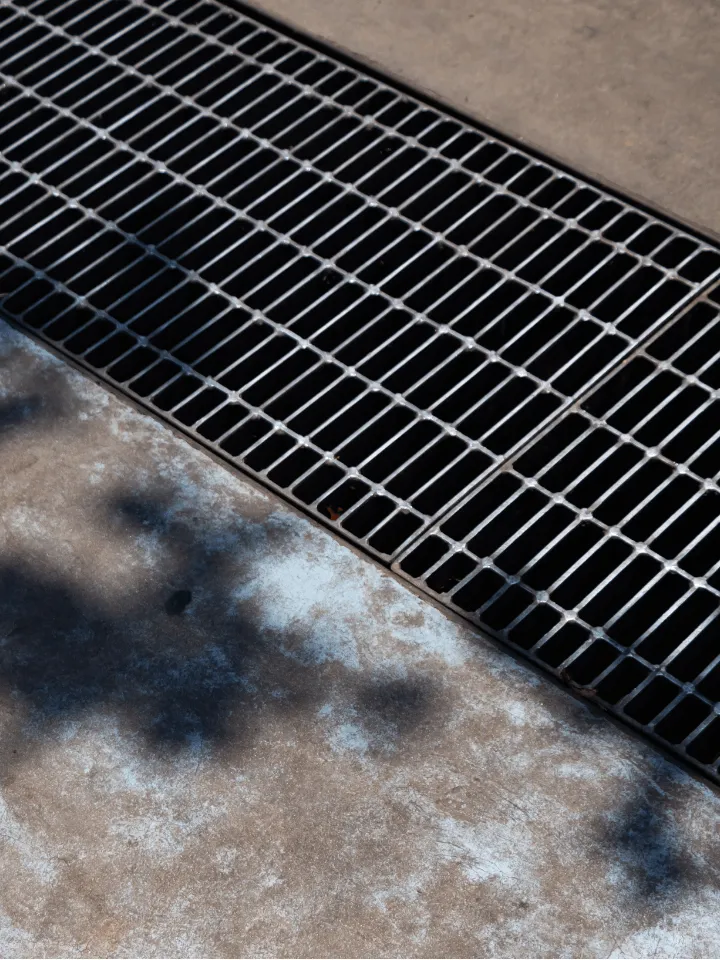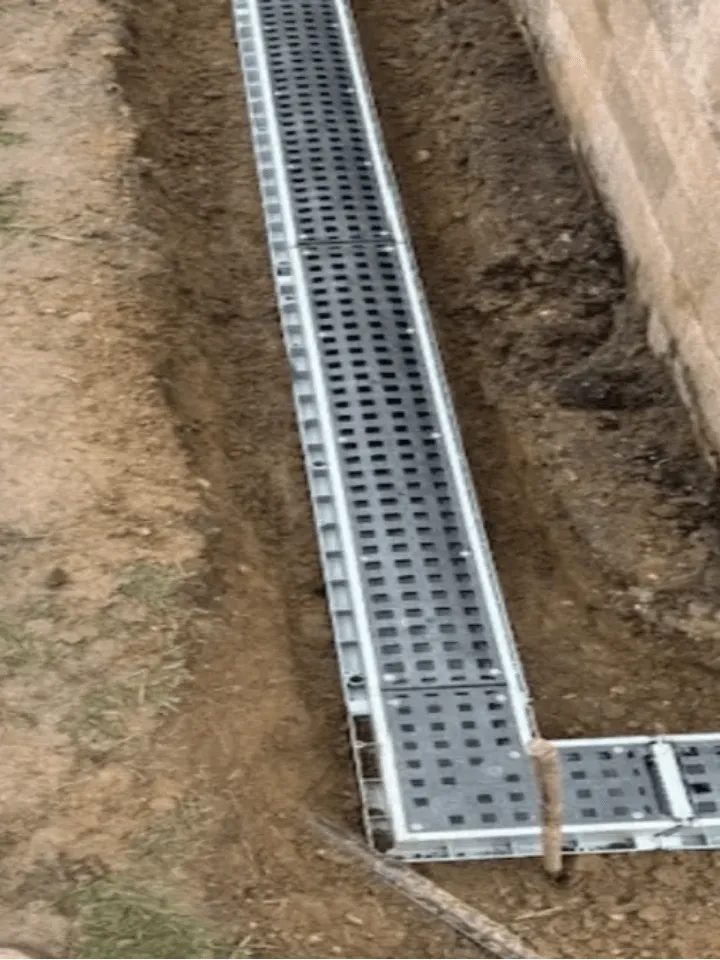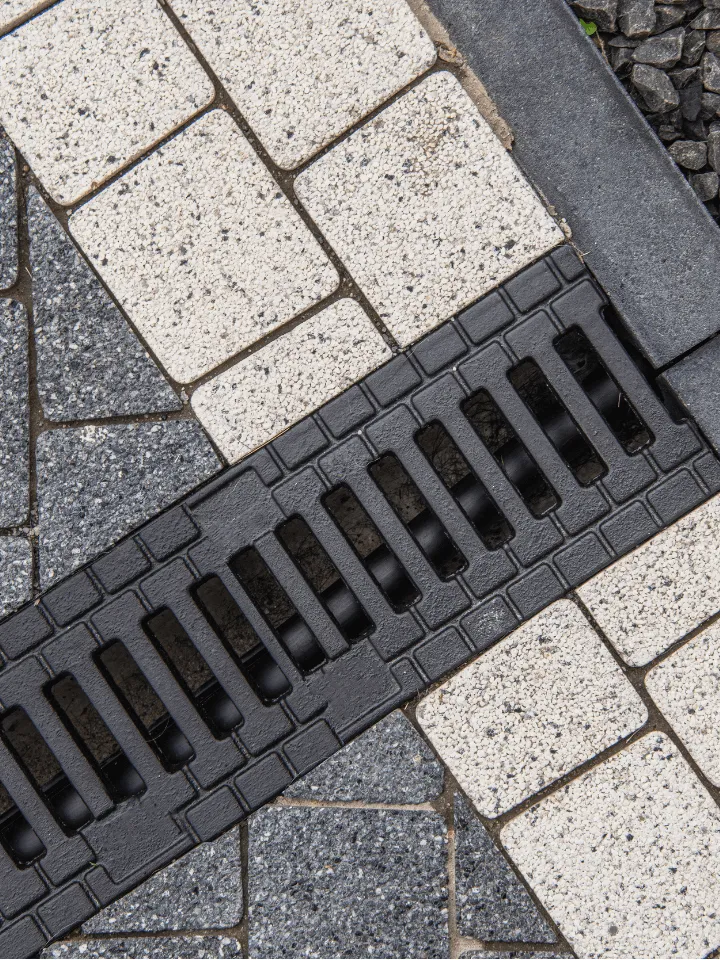Say Goodbye To Standing Water Grated Channel Drain Services
Serving in Suffolk County, Nassau County, and More!





Getting Surface Water? Not on Our Watch
Standing water around driveways, patios, or walkways? Grated channel drains quickly collect surface water and redirect it safely away from your property. At Diamond Masonry & Waterproofing, we install these systems with care, keeping your hardscapes dry and protected. Schedule your free estimate now!

Expert Installs
Installed drainage systems for all types of homes.
Sturdy Build
Our drain systems are built to handle heavy rain.
Clean Work
Get the job done without disrupting your space.
Tailored Designs
We build your system to fit your exact home layout.
Clear Quotes
No surprise charges, just honest prices.
Say Goodbye to Puddles, Cracks & Runoff
Water pooling in the wrong places can cause everything from slick walkways to cracked concrete and even foundation stress. Grated channel drains offer a simple, effective way to keep surface water moving away from your home.
Our team at Diamond Masonry & Waterproofing have completed hundreds of drainage projects and know how to install these systems cleanly and correctly.
Here’s how we approach every install:
Take the first step toward a dry, secure home. Contact us now for expert waterproofing and masonry solutions tailored to your needs.

With over 500 completed projects and 150+ reviews, we know how to build drainage solutions that last. If you’re tired of water going where it shouldn’t, our professional team at Diamond Masonry & Waterproofing can help!
A grated channel drain is a surface drainage system designed to collect and move water away from flat areas like driveways, patios, and walkways. It uses a long, narrow trench covered by a grate to catch runoff before it causes damage.
French drains are installed underground to manage water in the soil, while grated channel drains sit at the surface to catch runoff from rain or melting snow. Each solves a different kind of drainage problem, and we can help you decide which one is right for your home.
To unclog a channel drain, the grate can be lifted to remove leaves, dirt, and debris. For tougher blockages, we recommend a professional cleanout to make sure water is flowing freely again.
Channel drains are ideal when water is pooling on hard, flat surfaces, like driveways, garage entrances, or pool decks. They help redirect surface water quickly and prevent slipping, flooding, or erosion.
Channel drains usually connect to a drainage pipe that leads water to a safe discharge point, like a dry well, storm drain, or grassy runoff area. We’ll design the system to fit your property’s layout and local codes.
Yes, a channel drain is specifically designed to capture and redirect surface water, making it ideal for preventing puddles or runoff near driveways, patios, walkways, or garage entrances. When properly installed, it helps keep these areas dry and reduces the risk of erosion or water damage.
For residential use, PVC and polymer concrete are both common materials for channel drains. PVC is lightweight, affordable, and corrosion-resistant, while polymer concrete offers greater durability and strength, ideal for driveways or areas with vehicle traffic. Grates are usually made from galvanized steel, cast iron, or plastic, depending on the desired appearance and load capacity.
In some cases, yes. Exterior drainage projects may require permits, especially if the system connects to a municipal storm drain, alters water flow, or involves concrete removal. Local requirements vary by municipality, so it’s best to check with the building department or work with a contractor familiar with local codes.
Overflowing or backed-up channel drains are usually the result of clogs from debris, such as leaves, dirt, or sediment buildup. Improper slope, inadequate drain size, or a blocked outlet pipe can also lead to poor drainage. Regular cleaning and inspection help prevent water from pooling where it shouldn’t.
A channel drain can reduce the surface water near your foundation, which helps prevent basement leaks, especially when water tends to collect around exterior walls. While it doesn’t replace full waterproofing, it can be part of a broader drainage solution to keep water away from the home’s base.
